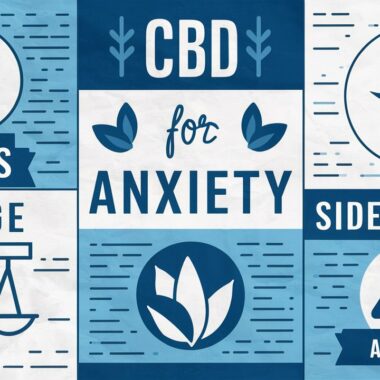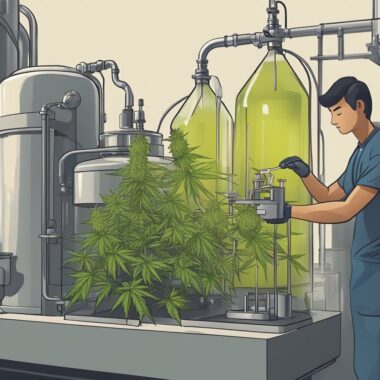As marijuana use becomes increasingly normalized, discussions around its potential downsides are gaining importance. One often overlooked aspect is the reality of marijuana withdrawal symptoms, which can be a significant hurdle for those attempting to quit or reduce their usage. This article delves into the nature of marijuana withdrawal, offering a comprehensive analysis of its symptoms, their underlying causes, and effective coping strategies.
1. The Reality of Marijuana Withdrawal: An Overview
While marijuana is often perceived as a non-addictive substance, the reality is more complex. Regular use of marijuana can lead to physical and psychological dependence, particularly when high-potency products are used frequently. Withdrawal symptoms can manifest when a person who is dependent on marijuana suddenly reduces or stops consumption.
These symptoms are not as severe as those associated with substances like opioids or alcohol, but they can be challenging enough to impact daily life and potentially lead to relapse.
2. Common Symptoms of Marijuana Withdrawal
Marijuana withdrawal symptoms can vary in intensity and duration depending on factors such as the level of dependence, frequency of use, and individual biological differences. Here’s a breakdown of the most common symptoms:
- Irritability and Mood Swings: One of the most frequently reported symptoms is irritability, which can escalate to mood swings or even anger. This is due to the brain’s readjustment to functioning without the influence of THC, the psychoactive component in marijuana.
- Anxiety and Depression: As the brain chemistry rebalances, some individuals may experience heightened anxiety or depressive feelings. These can be particularly pronounced in those who use marijuana as a way to manage stress or mental health issues.
- Sleep Disturbances: Insomnia or disturbed sleep patterns are common during marijuana withdrawal. Many users rely on marijuana to help them fall asleep, and without it, they may find themselves tossing and turning.
- Physical Symptoms: Though less severe than with other substances, physical symptoms can include headaches, nausea, and reduced appetite. Some individuals may also experience sweating and chills.
- Cravings: The desire to use marijuana can be intense during the withdrawal period, driven by both physical dependency and the brain’s association of marijuana use with pleasure or relief from stress.
3. The Science Behind Marijuana Withdrawal
The symptoms of marijuana withdrawal are rooted in the brain’s response to prolonged exposure to THC. When marijuana is used regularly, the brain adapts to the presence of THC by reducing the production and sensitivity of its natural endocannabinoid receptors. When marijuana use stops, the brain struggles to regain balance, leading to the array of withdrawal symptoms described.
The duration of withdrawal symptoms can vary, typically peaking within the first week after cessation and gradually diminishing over a few weeks. However, psychological symptoms like anxiety or depression can linger longer, particularly in those with underlying mental health issues.
4. Coping Strategies: How to Manage Withdrawal Symptoms
Successfully managing marijuana withdrawal requires a combination of strategies that address both the physical and psychological aspects of dependency:
- Gradual Reduction: For heavy users, tapering off marijuana use rather than quitting abruptly can reduce the severity of withdrawal symptoms. This allows the brain more time to adjust to the lower levels of THC.
- Healthy Lifestyle Choices: Engaging in regular physical activity, maintaining a balanced diet, and ensuring adequate sleep can support the body’s natural detoxification process and improve overall well-being during withdrawal.
- Mindfulness and Stress Management: Techniques such as mindfulness meditation, yoga, or deep-breathing exercises can help manage anxiety and stress, which are common during withdrawal.
- Seek Support: Whether through counseling, support groups, or therapy, connecting with others who understand the challenges of withdrawal can provide valuable emotional support and practical advice.
- Medications and Supplements: In some cases, over-the-counter medications or supplements may be recommended to alleviate specific symptoms, such as melatonin for sleep or omega-3 fatty acids for mood stabilization. It’s important to consult with a healthcare provider before starting any new medication or supplement regimen.
5. When to Seek Professional Help
While many people can manage marijuana withdrawal on their own, some may benefit from professional help. This is particularly true for those with severe withdrawal symptoms, a history of mental health issues, or a strong psychological dependence on marijuana.
Therapists specializing in addiction can provide tailored treatment plans, and in some cases, medical supervision may be necessary to manage symptoms safely. Cognitive-behavioral therapy (CBT) is particularly effective in helping individuals develop coping strategies and address the underlying issues that contribute to marijuana dependency.
6. The Broader Context: Understanding the Risks and Benefits of Marijuana Use
It’s important to acknowledge that marijuana has potential benefits, particularly in medical contexts where it is used to manage chronic pain, nausea, and other conditions. However, like any substance, it also carries risks, particularly when used frequently or in high doses.
Understanding marijuana withdrawal is crucial for anyone considering reducing or stopping their use. It’s a reminder that while marijuana may be less addictive than some other substances, it is not without its challenges, particularly when it comes to dependency and withdrawal.
Conclusion
Marijuana withdrawal is a real and often challenging experience that can affect both physical and mental health. By understanding the symptoms and implementing effective coping strategies, individuals can navigate the withdrawal process more successfully. Whether you’re considering quitting marijuana or supporting someone who is, being informed about what to expect and how to manage symptoms is key to a smoother transition. If withdrawal becomes overwhelming, professional help is available and can make a significant difference in the recovery journey.
- CBD Cream for Neck Pain Relief: A Comprehensive Guide to Benefits, Usage, and Effectiveness - September 13, 2024
- Medical Marijuana Card: How to Get One and What You Need to Know - September 13, 2024
- CBD For Anxiety: Uses, Dosage And Side Effects - September 13, 2024
















